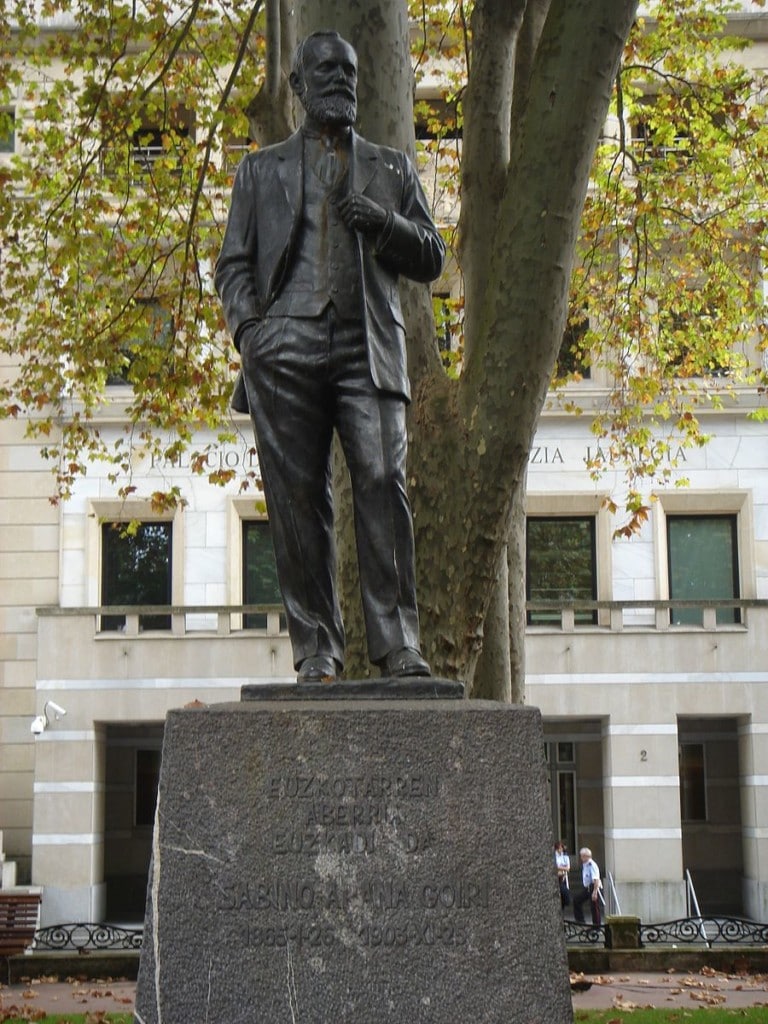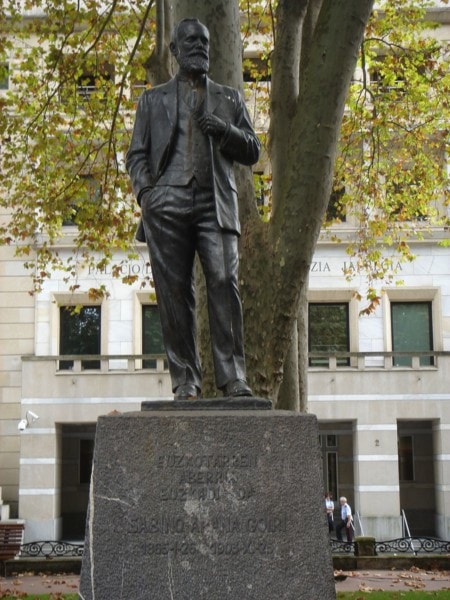Formation of the Basque National Party (PNV)


The rise in Basque Nationalism was as much a sign of the times to protect what had been guaranteed for centuries as it was a reaction against the Spanish that came to the area’s industrial centers, namely Bilbao. Few men were so impactful to this period as Sabino Arana Goiri, the founder of the Basque Nationalist Party. Much of his work, despite being considered fanciful later, were rallying points for many Basque people. Despite being from a shipbuilding family in Bilbao, he espoused the life of the farm and of the Basque peasantry. These symbols became even further points of unity, building an ideology on these rural ideals in combination with a xenophobic national attitude and a fascination with pagan idolatry while still holding true to the Catholic faith.
Despite not speaking Basque until later in life and being from liberal Bilbao, his writings and his ideologies, which excluded outsiders from being truly ‘Basque’, helped influence many Basque ideologues and nationalists. The anthem and the flag for the CAV (Basque Autonomous Community) as well as the name for the people, Euskadi, all stem from him. His movement, unlike later Basque movements, had far fewer socialist elements. The early Basque nationalist and independence movements had more ties to the reclamation of that past independence from Spain and their deep Catholic roots than to any secularist ideology. Arana’s focus on the traditional Basque population, as well as a mixture of the city’s middle class and rural areas, would create an uneasy alliance between the middle class and formerly Carlist regions on the basis of Basque national interest. And, as the 20th century began to take shape, these new institutions and ideas would come to head as the Interbellum in Europe created new tensions within and between nations as nationalist and socialist elements clashed in control for states.
Image caption: This is a statue of Sabino Arana Goiri (1865-1903), a Spanish man who is credited with the founding of the Basque Nationalist Party (in Spanish: Partido Nacionalista Vasco (PNV), in Basque Euzko Alderdi Jeltzalea (EAJ)) and a figure that, albeit misguided in the eyes of many Basque nationalists, remains vital to the development of the movement. The statue was created by Sebas Larranaga and the engraving below reads, in English, “The Basque Country is the homeland of the Basques”. (BilbaoTurismo) It was funded by PNV-EAJ members and stands on the lands of their headquarters, nicknamed Sabin Etxea (Sabino’s House) for the fact that it was where his family actually lived.